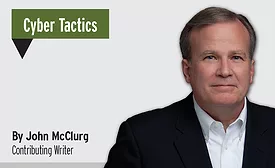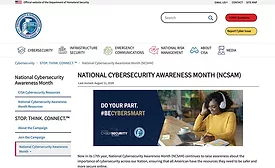Cyber Tactics Column
Cyber Tactics
Group attribution error – The most pervasive and potentially consequential threat of our day
October 1, 2020
Cyber Tactics
Zero trust further considered - another benefit of living in the times of AI
July 1, 2020
Cyber Tactics
DECADE OF THE RATs: Novel Cross-Platform APT Attacks Targeting Linux Windows and Android
May 1, 2020
Cyber Tactics
Better Mobile Security with a Mobile Threat Defense Plan
What is a Mobile Threat Defense (MTD) and do you have one?
March 1, 2020
Sign-up to receive top management & result-driven techniques in the industry.
Join over 20,000+ industry leaders who receive our premium content.
SIGN UP TODAY!Copyright ©2026. All Rights Reserved BNP Media.
Design, CMS, Hosting & Web Development :: ePublishing










